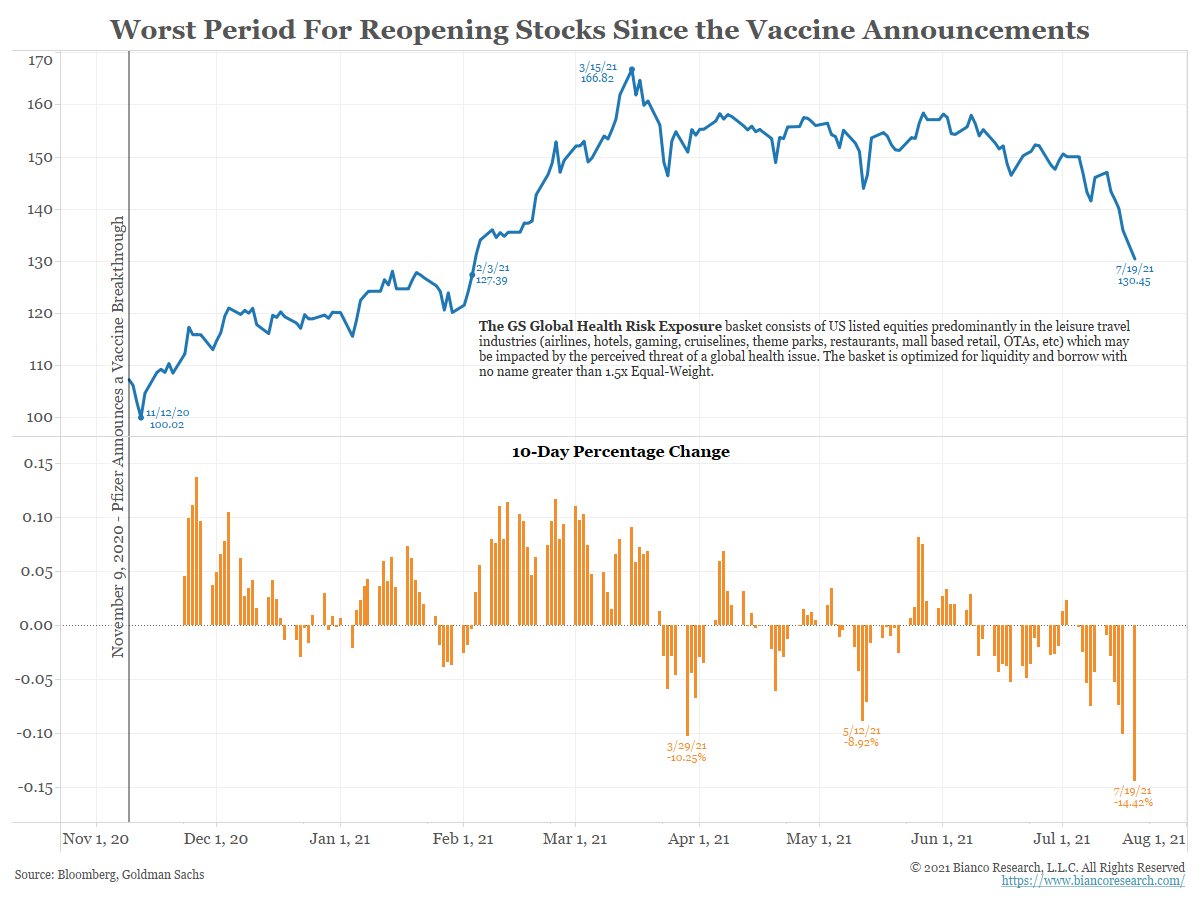
The latest from Japan.
The Olympics have 8 more days and the spike in cases continues.
@JackFarley96 @acrossthespread
1/5
The Olympics have 8 more days and the spike in cases continues.
@JackFarley96 @acrossthespread
1/5

Japan is under a "state of emergency" and as Apple mobility shows, they are severely restricting their movements (the Olympics started July 23).
(Apple aggregates location data services for various areas)
3/5
(Apple aggregates location data services for various areas)
3/5

Google also aggregates movement of their phones and they similarly show Tokyo businesses have essentially closed, mass transit is empty and even walks in the park are down since the opening ceremonies (July 23).
4/5
4/5

What did Tokyo get from the Olympics?
* $Billions spent on sports facilities that will rarely get used again
* massive disruption life and business, lost income
* no tourism
* A spike in delta variant cases that will last a while
The blowback will be big and profound.
5/5
* $Billions spent on sports facilities that will rarely get used again
* massive disruption life and business, lost income
* no tourism
* A spike in delta variant cases that will last a while
The blowback will be big and profound.
5/5
Worth noting that former Prime Minister Abe was strutting around like a Peacock in front of the world at the closing ceremonies of the Rio games in 2016 celebrating that the next games would be in Tokyo.
He did not even attend the opening ceremonies last week.
nuff said
He did not even attend the opening ceremonies last week.
nuff said

• • •
Missing some Tweet in this thread? You can try to
force a refresh










